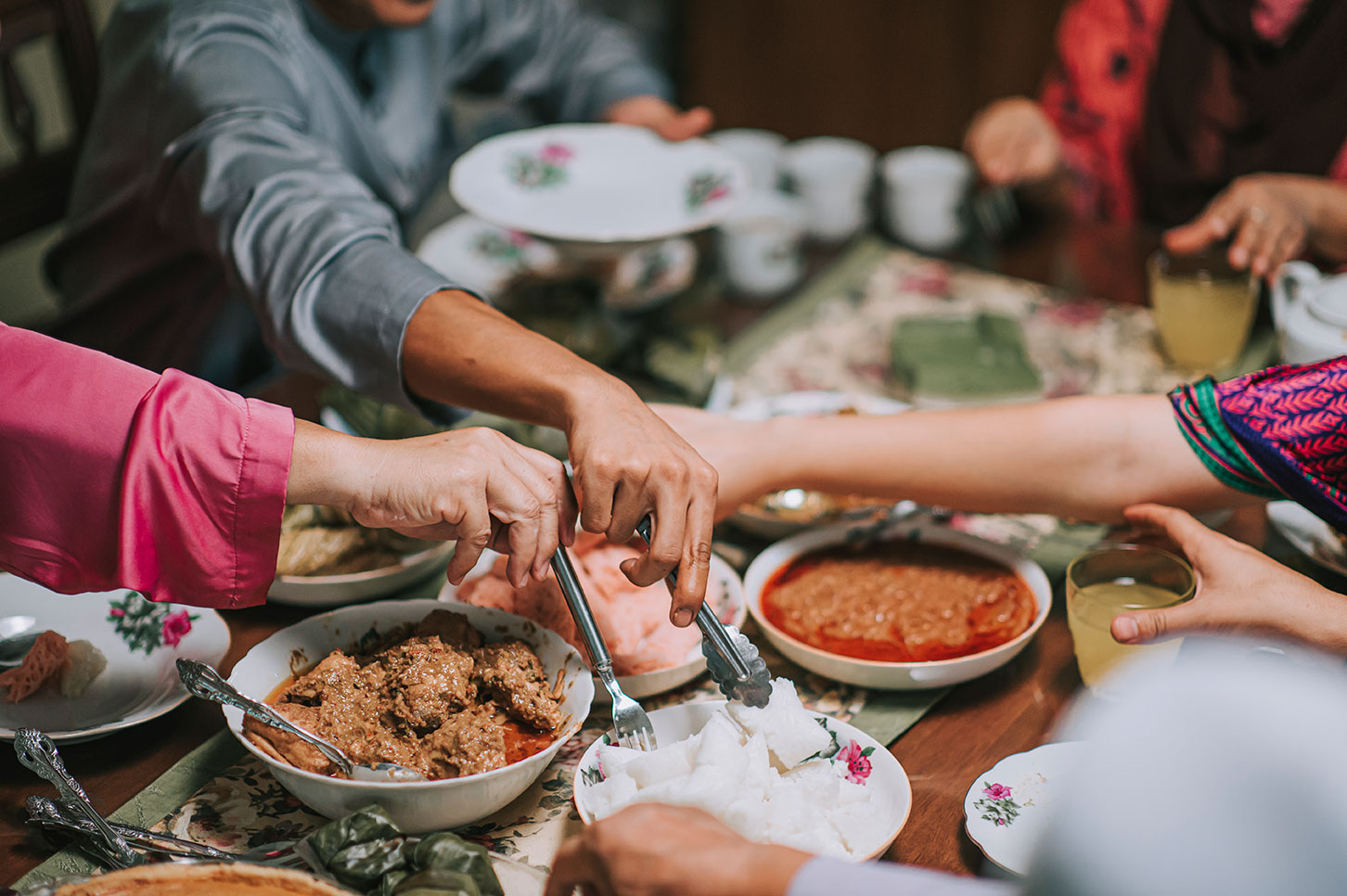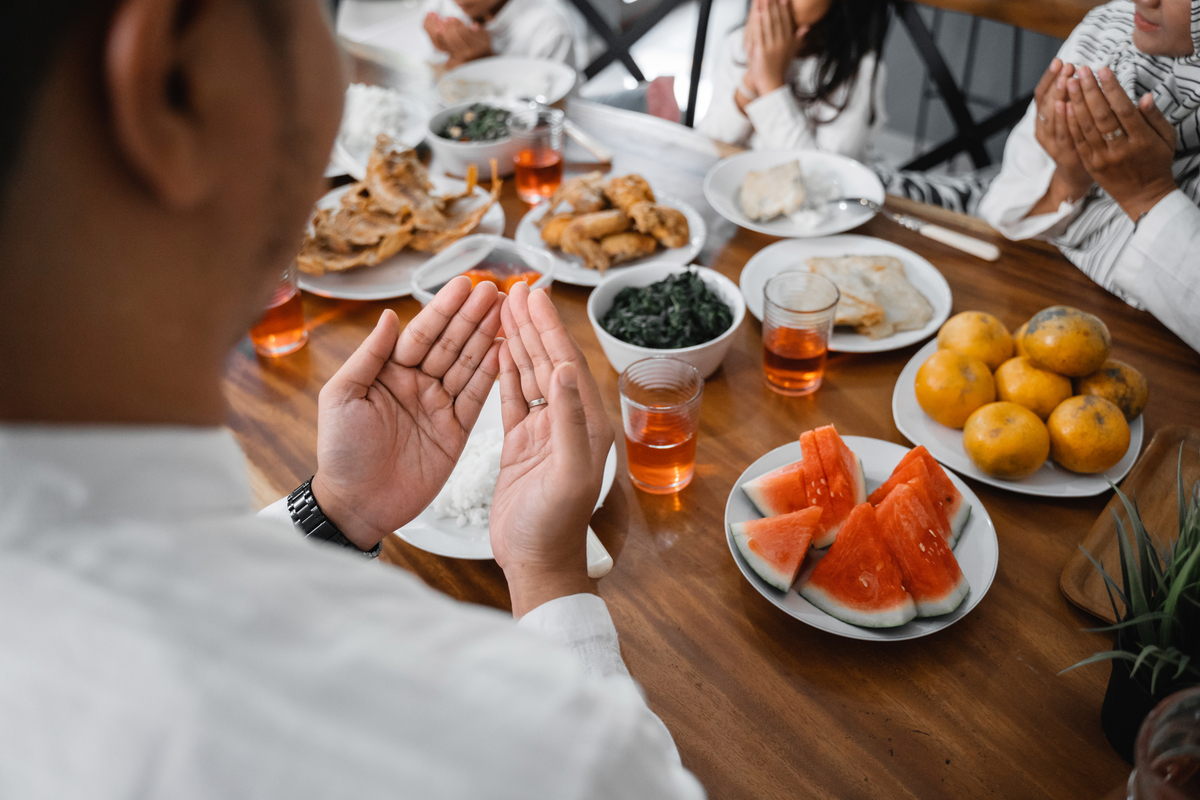- +201040914066
- info@quraaany.com


The main advantages of fasting in Ramadan throughout this auspicious month will be discussed in this article, along with the reasons why Muslims observe this lovely act of devotion.
Muslims throughout the world commemorate Ramadan as a time of great spiritual introspection, dedication, and self-control. One of the Five Pillars of Islam is fasting throughout this holy month, which represents an act of worship, thankfulness, and closeness to Allah. In addition to its spiritual significance, Ramadan fasting has several health, psychological, and social advantages that improve people’s lives and build stronger communities.
Fasting in Ramadan
As Muslims, we fast for Allah (swt) and therefore focus on the spiritual benefits of fasting in Ramadan. But fasting in Ramadan also has untold physical benefits.
Recent scientific studies show that it can regenerate the immune system and might even boost the cancer-curing effects of chemotherapy in cancer patients undergoing treatment! Let’s share the wisdom this Ramadan.

The month of Ramadan
One of the holiest months for Muslims is Ramadan, which falls in the ninth month of the Islamic calendar. The Holy Qur’an is said to have been sent down from heaven during this month “as a guidance for men and women, a declaration of direction, and a means of salvation.”
Muslims keep a rigorous fast from sunrise to sunset during this month. During the day, they are not permitted to eat or drink anything, including water. In addition to being a kind of spiritual discipline and a way to develop empathy for others who are less fortunate, fasting in Ramadan is a private act of worship that draws one closer to God.
After the day, prayer and a joyous feast known as an iftar are held to break the fast. After the iftar, it is traditional to visit relatives and friends.
Many Muslims visit the mosque and pray for many hours throughout Ramadan. Muslims offer a unique prayer known as the Tarawih prayer (night prayer) in addition to the five daily prayers that are fundamental to Islam.
Layat al-Qadr, also known as the Night of Power, is a special night observed by Muslims on the evening of the 27th day of Ramadan. On this night, Muhammad is said to have received the Holy Qur’an for the first time.
Eid al-Fitr commemorates the breaking of the fast after Ramadan. Families and friends get together for holiday feasts and gift-giving. The impoverished are also given special presents.
Advice for effective fasting in Ramadan
Fasting in Ramadan is as much a mental as a physical activity. Here are some pointers to assist Muslims get used to the daily fast, even if our methods for getting our bodies and minds ready may vary:
-
Drink plenty of water
Even if you don’t feel particularly thirsty, try to drink liquids many times during the night because thirst is a symptom that your body is already dehydrated. Caffeinated beverages might dehydrate you, so choose fluids without caffeine.
Not only is it customary to break your fast with water during iftar, the evening meal after sunset, but it also guarantees that you acquire the most hydration possible before becoming sidetracked by food.

However, use caution and refrain from consuming excessive amounts of alcohol at once. Water intoxication is a potentially deadly illness that can occur when you attempt to consume many gallons at once, diluting your body’s electrolytes.
-
Variety adds flavor to life
In the evening, eat a range of meals. Your body needs healthy food now more than ever to make up for the stress of fasting. Lean protein, fruits, vegetables, whole grains, and healthy fat (plant-based fat like that found in nuts and olive oil) are all essential for providing your body with the nutrition it requires.
-
The size of the portion matters
About 20 minutes pass before the body realizes it has eaten enough. Therefore, avoid overindulging during Iftar. Your body will experience less stress and have more energy if you eat consciously and pay attention to when your hunger is truly satisfied.
How Do Muslims Celebrate Prayers and Fasting in Ramadan?
The broad definition of fasting is avoiding food, liquids, and sexual activity from before sunrise to sunset. During the 29–30 days of Ramadan, Muslims must fast every day. Charity or non-Ramadan fasting days may be adequate if you are unable to fast. Pre-dawn meals are popular and regarded as a very honorable custom.
After the evening prayers, a more substantial meal is typically consumed after breaking fast with milk and dates after dusk. Gathering for extra community prayers after the night prayer every night of the month is a crucial optional activity in addition to the five daily prayers. Tarawih is the name of this prayer.
The Act of Fasting Defines
Islam is founded on five fundamental principles, and adhering to these principles is essential to being recognized as an Islamic adherent. The five tenets of Islam are sometimes known as the Five Pillars of Islam: Salat (prayer), Zakat (charity), Sawm (fasting in Ramadan), Hajj (pilgrimage), and Shahadah (belief in one God, Allah SWT).
Allah (SWT) has made these acts of devotion obligatory. All capable Muslims are required to fast throughout Ramadan, which is one of the five pillars and an important part of their devotion to Allah.
-
To Become Pious
Why do Muslims observe the Ramadan fast? We are prone to sin and transgression because we are human. Muslims who fast learn to be devout by focusing on their spiritual development and avoiding worldly pleasures.
Establishing a set training time during which believers might conquer vices, acquire virtues, and receive blessings from Allah (SWT) is the aim of Ramadan.
-
To Benefit from the Powerful Night
The last ten days of Ramadan are when Laylat-al-Qadr, also called the Night of Power, occurs. The rewards of this holy night outweigh those of a thousand months.
Seeking Allah’s pardon and obtaining more blessings via acts of devotion, including prayer, supplication, and sawm, are among the goals of Ramadan.

Read More: How to observe Ramadan
-
Fasting in Ramadan To Ask for Pardon for Past Transgressions
The chance to ask for forgiveness for past transgressions is one of the reasons Muslims fast during Ramadan.
Believers have the opportunity to reevaluate their deeds and strengthen their bond with Allah (SWT) throughout this holy month.
-
To Understand the Anguish of Starvation
Instilling thankfulness is another reason Muslims fast throughout the month of Ramadan. By experiencing hunger and thirst, fasting enables Christians to develop compassion for others who are less fortunate. This technique promotes compassion and solidarity while bridging the wealth and poverty gaps.